In today's fast-paced digital world, mastering technology isn't just a luxury; it's a necessity for personal and professional growth. Our digital literacy program is designed to equip individuals with the essential skills to navigate online tools and resources effectively. By fostering an inclusive environment, we aim to empower participants from all backgrounds to thrive in the digital landscape. So, if you're curious to learn how you can get involved and help bridge the digital divide, read on!
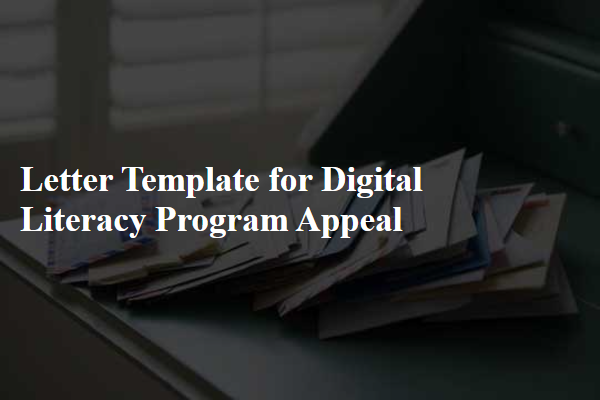
Clear purpose statement
Digital literacy programs are essential for equipping individuals with the skills necessary to navigate the increasingly technology-driven world. These programs focus on critical competencies, such as internet safety, information evaluation, and proficiency in digital communication tools. In today's environment, where over 4.9 billion people are internet users, access to digital literacy can significantly diminish the skills gap seen in underserved communities. For instance, individuals lacking these skills may struggle to apply for jobs online or access crucial services, ultimately leading to economic disparities. Implementing comprehensive digital literacy initiatives not only empowers people but also fosters social inclusion and economic equity in our society.
Identifying target audience
The Digital Literacy Program aims to empower specific target audiences, namely high school students, elderly individuals, and job seekers. High school students (ages 14-18) often require digital skills for academic success and future employment opportunities, particularly with technological advancements in the workforce. Elderly individuals (ages 65 and above) increasingly benefit from digital literacy to access online services, communicate with family, and participate in social networks, enhancing their quality of life. Job seekers, particularly those in transitioning careers, need proficiency in digital tools and platforms, including resume building and online job searching, to increase their employability in a competitive job market. Engaging these groups through tailored workshops and resources will foster a more inclusive digital community.
Key benefits of the program
A digital literacy program plays a crucial role in equipping individuals with essential skills for the 21st century. Participants learn to navigate various digital platforms, including social media, online banking, and educational resources, which empowers them to communicate effectively and securely in an increasingly online world. Additionally, the program fosters critical thinking skills, enabling learners to discern credible information from misinformation (notably on platforms like Facebook and Twitter), promoting informed decision-making. Enhanced digital skills also increase employability, opening doors to job opportunities in technology-driven industries, which are projected to grow by 12% by 2028 according to the U.S. Bureau of Labor Statistics. In communities with higher digital literacy rates, there are noticeable improvements in economic growth and social engagement, as residents can access information, services, and support systems more efficiently. Ultimately, the program not only transforms individual lives but also strengthens community resilience and cohesion.
Required resources and support
Digital literacy programs are essential for enhancing technological skills in today's society, especially in urban areas like San Francisco, California. Access to modern tools such as laptops and high-speed internet (with speeds of at least 25 Mbps recommended by the FCC) is crucial for effective learning. Curriculum resources including interactive software and educational platforms like Khan Academy and Coursera can significantly improve engagement (targeting diverse demographics such as adults and seniors). Support from local organizations and partnerships can facilitate workshops and training sessions, enabling participants to gain crucial skills for employment and personal growth. Funding is necessary to sustain these initiatives and expand outreach to underserved communities, ensuring equitable access to digital education.
Call to action and contact information
The digital literacy program empowers individuals in urban areas, such as Los Angeles, to develop essential skills for navigating modern technology. Participants gain proficiency in software applications, online communication, and cybersecurity awareness, promoting safer internet practices. Local community centers serve as hubs for workshops and resources, fostering collaboration among learners. Engaging with social media platforms enhances participants' ability to connect with broader educational opportunities. A call to action encourages support through donations or volunteering efforts to expand access to underprivileged communities. For more information, interested individuals can reach out via email at info@digitalliteracyprogram.org or call (555) 123-4567.

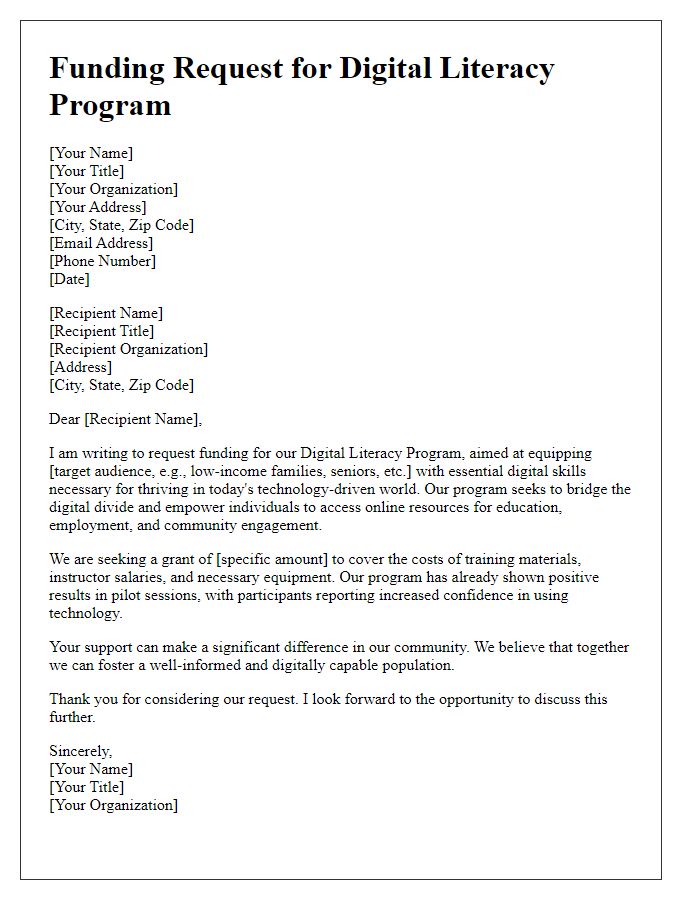
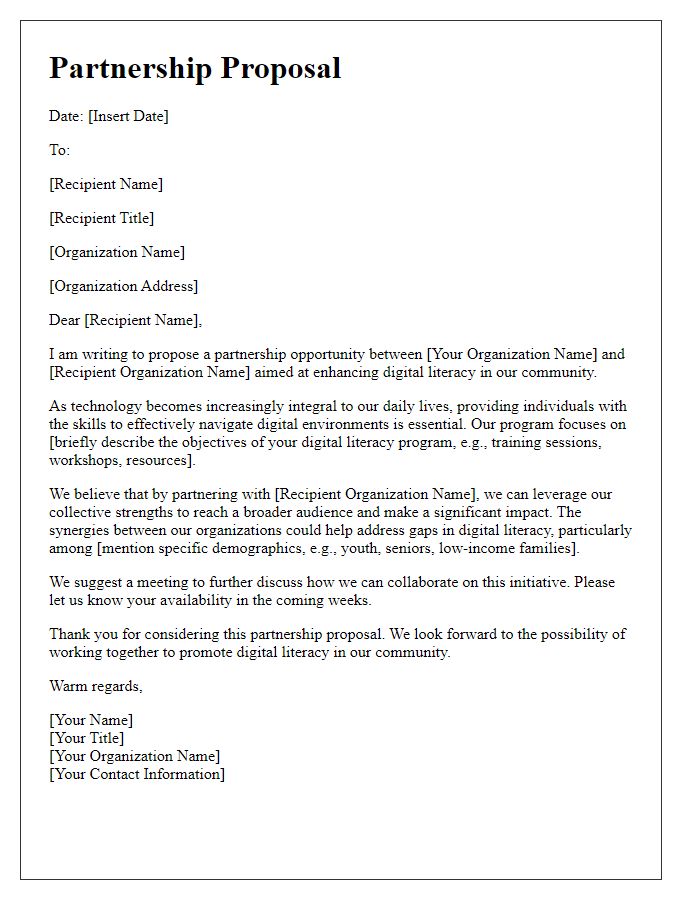
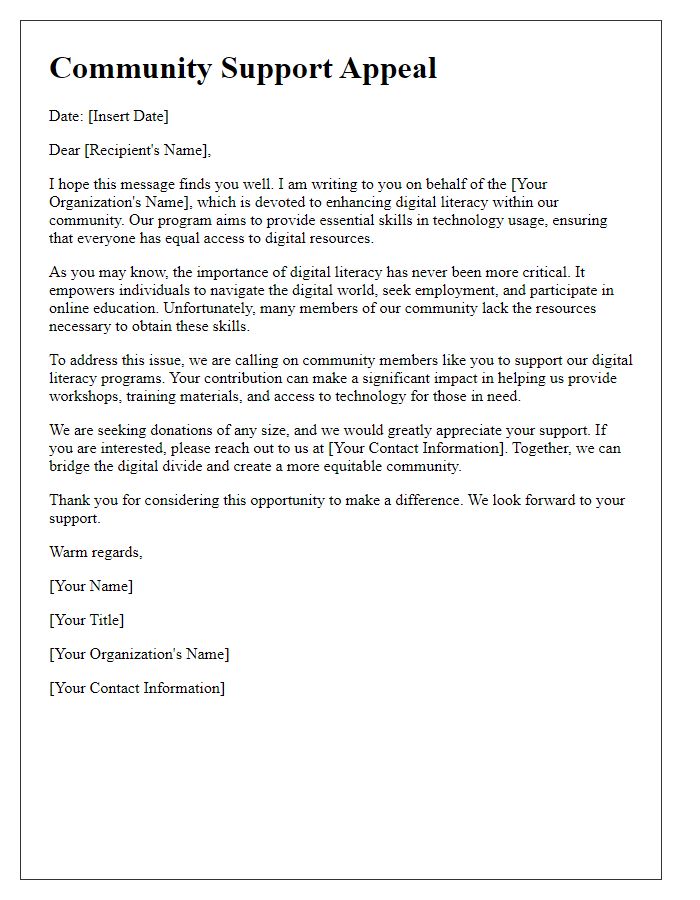
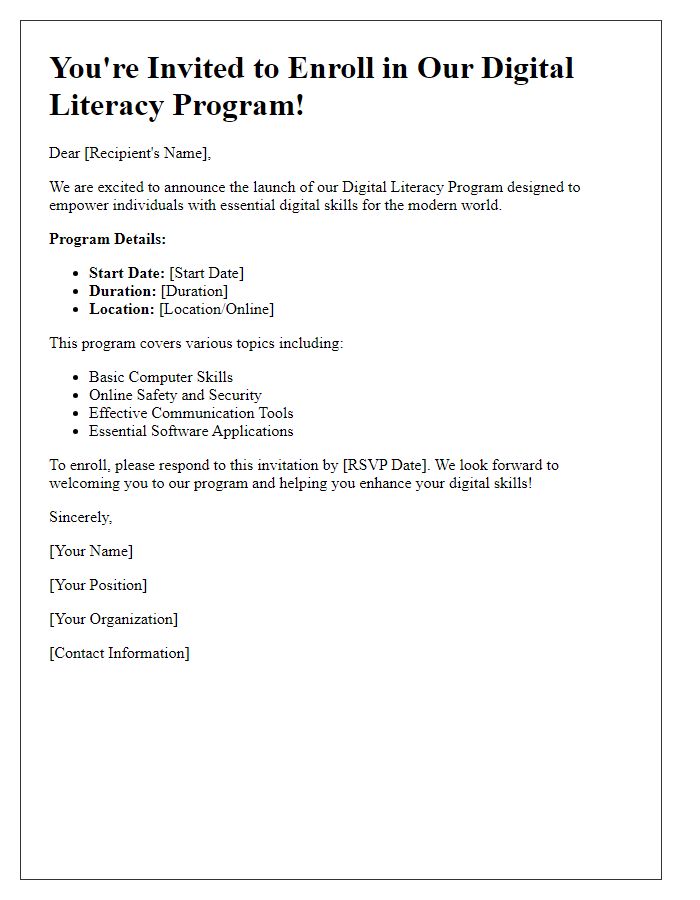
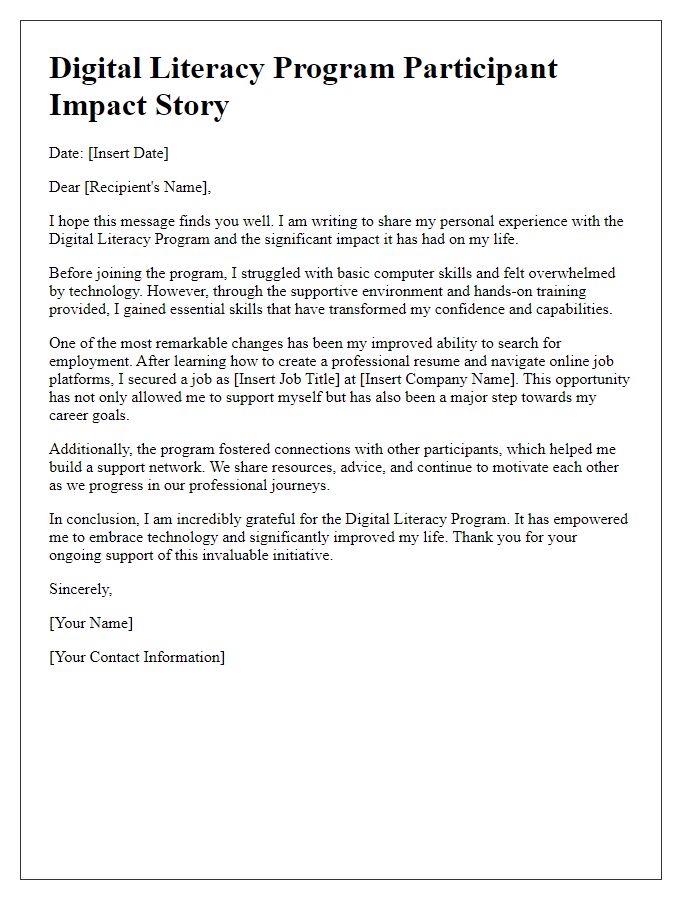
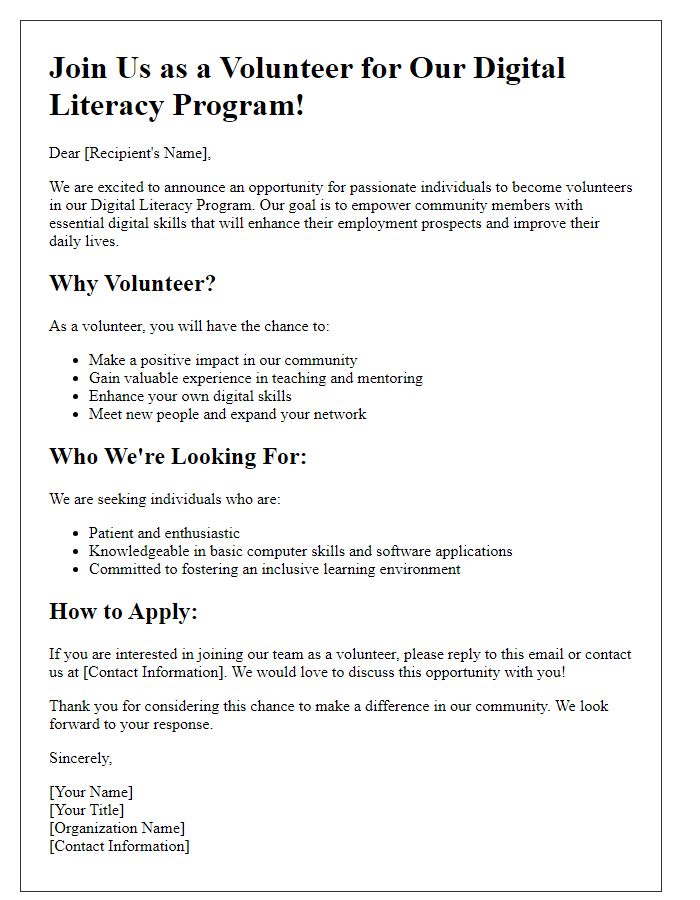
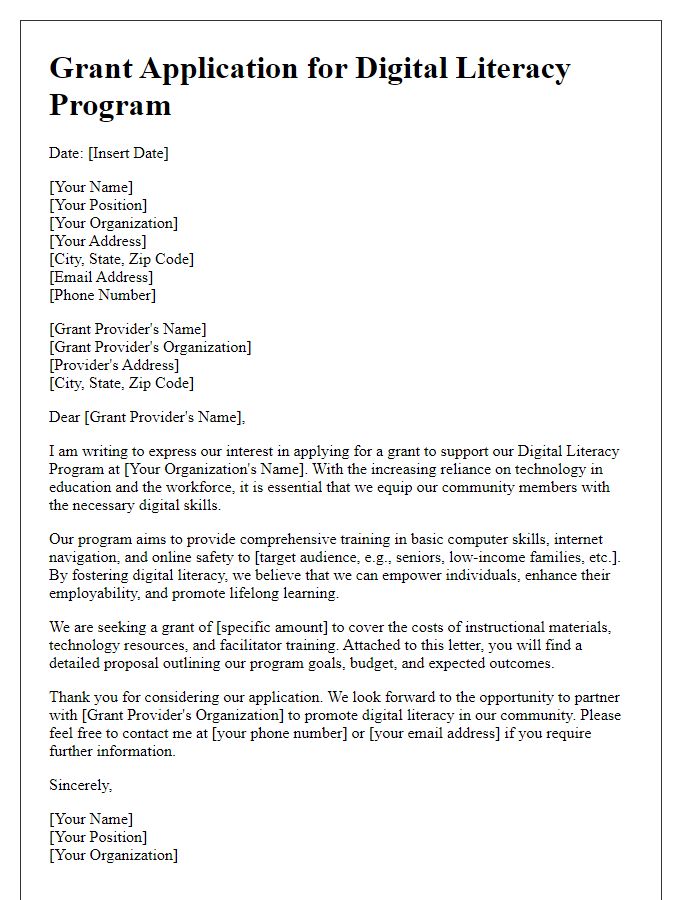
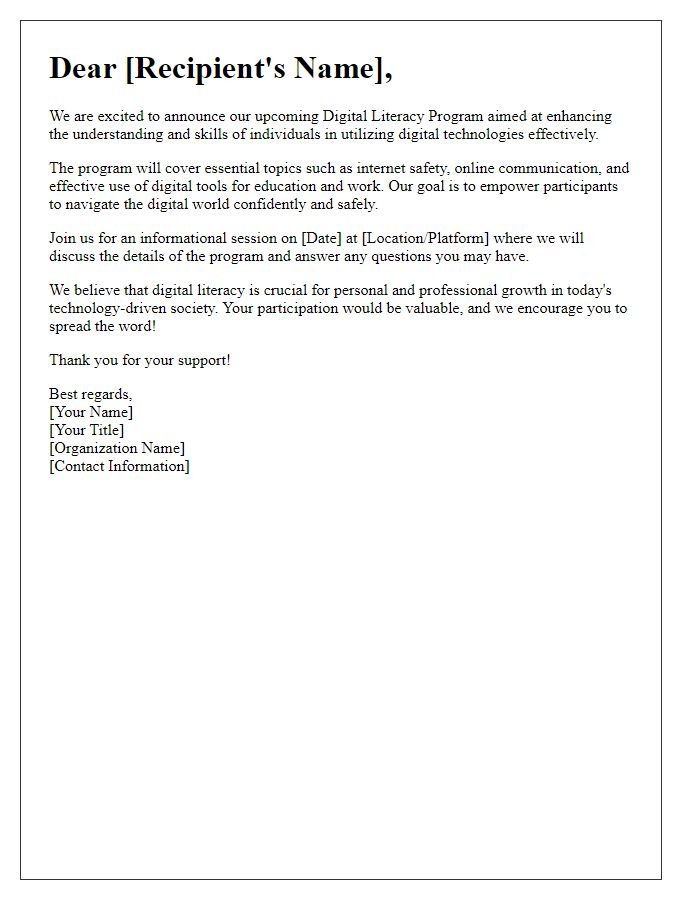
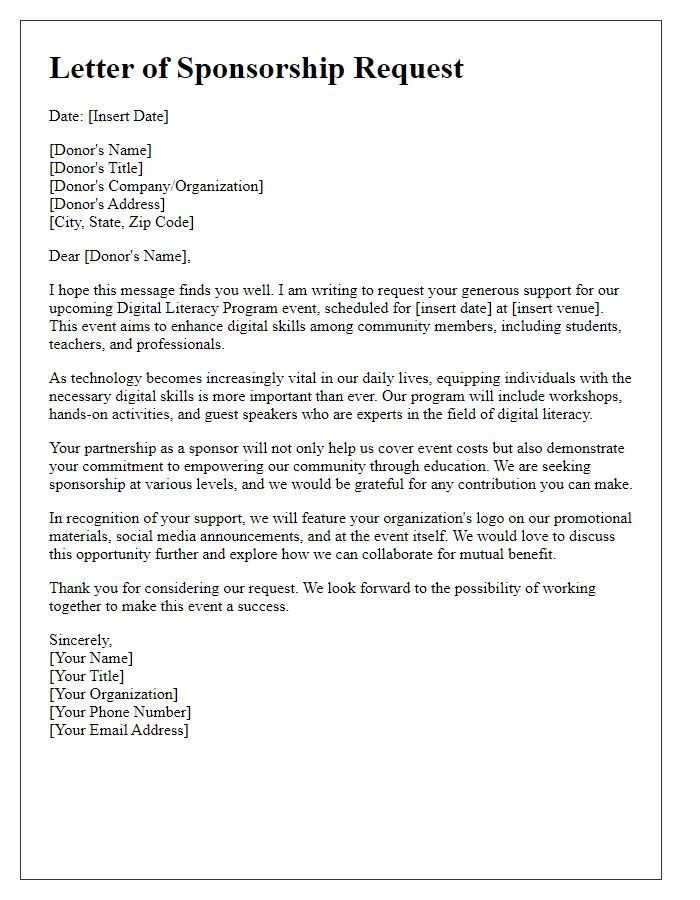
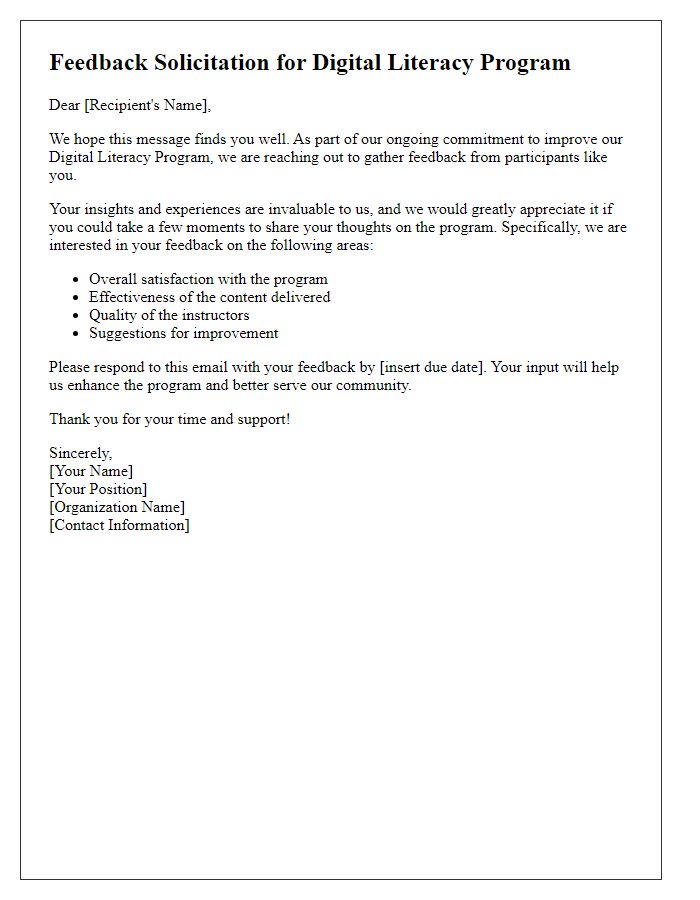

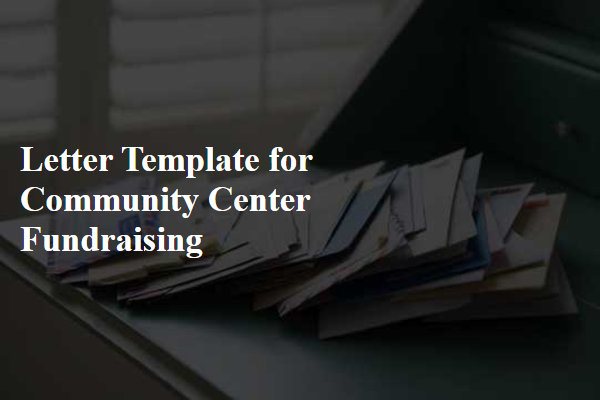
Comments